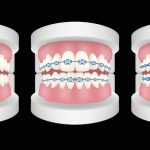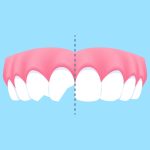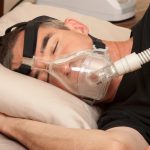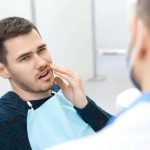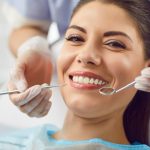Do you snore loudly every night? Do you wake up feeling tired even after sleeping for hours? You might have sleep apnea. Many people think only medical professionals can help with this problem. But did you know that a dentist in Bolton can also help you breathe better at night?
What is Sleep Apnea?
Sleep apnea is a serious condition where you stop breathing many times while sleeping. Your throat muscles relax too much and block your airway. This makes your oxygen levels drop. Your brain wakes you up to start breathing again. This happens over and over all night long.
There are three main types of sleep apnea:
- Obstructive Sleep Apnea (OSA) – Most common type, where throat muscles block the airway
- Central Sleep Apnea – The brain doesn’t send signals to the breathing muscles
- Mixed Sleep Apnea – Combination of both types
Common signs include loud snoring, gasping for air while sleeping, morning headaches, and feeling very tired during the day.
How Can a Dentist for Sleep Apnea Help You?
You may ask yourself how a dentist is able to assist with breathing disorders. Dentists are very knowledgeable about the mouth, jaw, and throat region. They are able to visualize how your teeth, tongue, and jaw placement influence your breathing while you are asleep.
A sleep apnea dentist receives specialized training. They collaborate with sleep physicians to develop treatment protocols. They are able to design custom appliances that help keep your airway open during sleep.
Sleep Apnea Treatment Options from Dentists
Oral Appliances
Your dentist can create special mouth guards known as oral appliances. These appliances shift your lower jaw forward by a small amount. This fluffs up your airway so you breathe more easily. The appliances are fitted especially for your mouth.
Mandibular Advancement Devices (MADs)
These devices advance your lower jaw during sleep. This advances your tongue as well and opens your throat. Most patients prefer these over CPAP machines.
Tongue Retaining Devices
These devices retain your tongue in a proper position during sleep, and they prevent your tongue from obstructing your airway.
Dental vs CPAP Treatment Comparison
| Treatment Type | Comfort Level | Travel Easy | Noise Level | Success Rate |
| Oral Appliance | High | Very Easy | Silent | 80-90% |
| CPAP Machine | Medium | Difficult | Some Noise | 95% |
| Surgery | Low Initially | Easy | Silent | Varies |
Benefits of Choosing Dental Sleep Apnea Treatment
- Easy to Use: You simply place the device in your mouth at night. No machines, tubes or masks required.
- Silent Treatment: Oral devices are quiet. Your partner will sleep peacefully as well.
- Travel Friendly: Small devices pack into your bag with ease. No need to carry heavy machines or worry about electricity.
- Comfortable: Personalized devices mould to the exact shape of your mouth. Most people quickly become accustomed to them.
- Improved Compliance: Research indicates individuals utilize oral appliances more frequently compared to CPAP devices.
Who is a Good Candidate for Dental Treatment?
Dental treatment of sleep apnea treatment in Bolton is most suitable for:
- Individuals with mild to moderate sleep apnea
- Individuals who are unable to utilize CPAP devices
- Frequent travelers
- Individuals with claustrophobia
- Individuals looking for quiet treatment methods
Your dentist will evaluate your jaw, teeth, and mouth to determine whether or not you are a good candidate. They might take impressions or X-rays of your teeth.
Finding Sleep Apnea Treatment Near You
Here are some important aspects to check while searching for a nearby dentist offering sleep apnea treatment:
- Training and Certification: This ensures the dentist has specialized in sleep medicine. Besides that, one should check in with dental sleep medicine groups for certification.
- Experience: On average, how many patients have they treated with sleep apnea? Generally, more experience means better results.
- Technology: New clinics are using digital impressions and 3D imaging for a better-fitting appliance.
- Collaboration: Excellent dentists work closely with sleep physicians and medical teams.
What to Expect During Treatment
Your first visit is usually going to encompass the much-needed assessment of the mouth, throat, and airway. Probably, some pictures and measurements will be taken. The sleep issues, along with the medical history, will also be discussed with them. If you are qualified, they will take an impression of your teeth. This is what is used to create your custom-made oral appliance. Most appliances finish in 2 to 3 weeks.
Follow-up visits help adjust the device for comfort and effectiveness. The dentist will monitor your progress and will adjust it if necessary.
Can A Dentist Help Me With Snoring Or Sleep Apnea Instead Of Using CPAP?
Yes, a dentist at a dental clinic near you can definitely help you with snoring and sleep apnea instead of utilizing CPAP. Unlike the usual CPAP treatment approach, oral appliances are alternative treatments that are more comfortable, less noisy, and much more effective. They tend to work for many, particularly those who suffer mild to moderate cases of sleep apnea.
Treat Sleep Apnea and Improve Life!
At South Hill Dental, we provide effective treatment for sleep apnea. Our dental team helps patients improve breathing and sleep using oral appliances and other dental solutions. We focus on safe, comfortable, and personalized care to keep your oral and overall health in good condition.
Take the first step toward better sleep today. Call South Hill Dental now to schedule your appointment!





